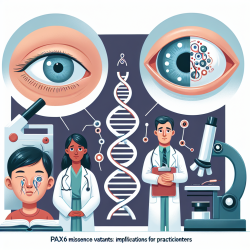The mental health sector is facing a significant crisis, exacerbated by the ongoing COVID-19 pandemic. The demand for mental health services has surged, yet the supply of qualified professionals has not kept pace. This gap has been recognized at the federal level, leading to legislative efforts like the Resident Physician Shortage Reduction Act of 2021. This act is a pivotal step towards addressing these shortages by increasing residency positions funded by Medicare.
The Impact of COVID-19 on Mental Health Services
The pandemic has highlighted numerous vulnerabilities within our healthcare system, particularly in mental health services. According to a report by the American Academy of Child and Adolescent Psychiatrists, emergency department visits for mental health issues among children have significantly increased. This surge underscores a dire need for more trained mental health professionals.
The Resident Physician Shortage Reduction Act of 2021
Introduced in 2021, this bipartisan bill seeks to expand residency positions by 2,000 annually from 2023 through 2029. The goal is to alleviate physician shortages and promote diversity within the medical workforce. By increasing funding for graduate medical education, this act aims to bolster the number of healthcare providers available to meet growing demands.
Opportunities for Practitioners
For practitioners in the field, understanding and leveraging the outcomes of this legislation can be crucial. Here are some strategies:
- Stay Informed: Keep abreast of legislative changes and funding opportunities that may affect your practice or institution.
- Advocate for Resources: Use your voice to advocate for increased resources and support at both local and national levels.
- Enhance Skills: Engage in continuous professional development to improve your skills and adaptability in a changing landscape.
- Collaborate: Work with other healthcare providers to create integrated care models that can better serve patients' needs.
The Role of Online Therapy Services
Companies like TinyEYE play a crucial role in bridging the gap between demand and supply in mental health services. By providing online therapy options, they offer flexible solutions that can reach underserved communities and alleviate some pressure on traditional healthcare settings.
Encouraging Further Research
The current situation presents an opportunity for further research into innovative solutions that can address workforce shortages. Practitioners are encouraged to explore new models of care delivery and engage with research that seeks to understand and solve these complex challenges.
To read the original research paper, please follow this link: Addressing the Mental Health Workforce Shortage Through the Resident Physician Shortage Reduction Act of 2021.










